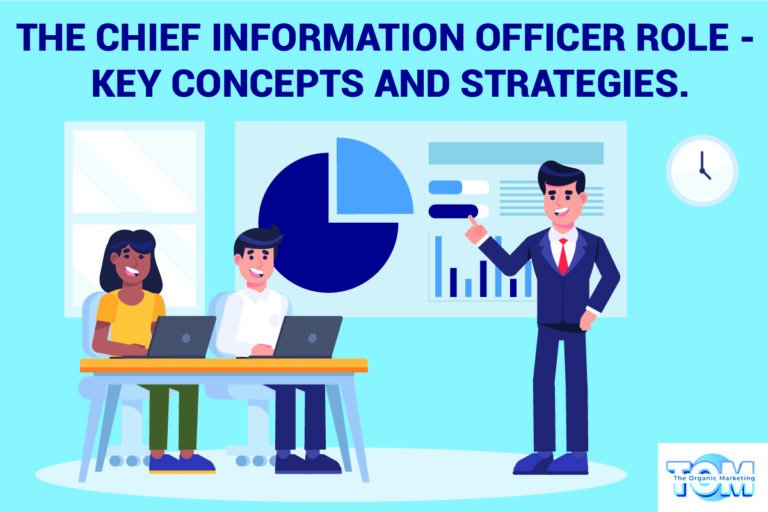The Power of Revenue Leadership: Chief Revenue Officer Explained
Businesses are continuously looking for strategies to boost profitability and drive revenue growth in today’s cutthroat business environment. In order to accomplish these goals, the Chief Revenue Officer (CRO) position has become increasingly important. This in-depth guide will cover all you need to know about the Chief Revenue Officer, including their roles and organizational structure as well as the necessary abilities, credentials, and pay expectations.
What is a Chief Revenue Officer?
The C-suite executive known as the Chief Revenue Officer is in charge of managing and directing all revenue-related operations in a business. The fundamental goal of the CRO is to maximize revenue across all client touchpoints, in contrast to conventional C-suite jobs that concentrate on certain departments. The position focuses on connecting the sales, marketing, and customer success teams to maximize revenue creation. It is strategic and cross-functional.
How do Chief Revenue Officers work?
Chief Revenue Officers collaborate with several departments to develop an integrated revenue strategy. To find growth prospects, they examine market trends, consumer behavior, and competitive environments. Breaking down divisions and promoting a customer-centric culture are two aspects of the CRO’s strategy. They keep a careful eye on metrics and key performance indicators (KPIs) to judge how well revenue tactics are working and to make data-driven choices.
Responsibilities of a Chief Revenue Officer
- Development of a revenue strategy: Establishing thorough revenue plans that are in line with the broad corporate goals and consumer desires.
- Coordinating sales and marketing: Making sure that the sales and marketing teams work together seamlessly to maximize lead generation and conversion.
- Gaining and retaining customers: Discovering new consumer groups and putting methods into practice to boost customer loyalty and retention.
- Cost and packaging: To increase sales and profitability, price strategies and product packaging are examined.
- Forecasting revenue: Delivering precise income projections to direct budgeting and resource allocation.
- Analysis of performance: Assessing sales and marketing performance, finding opportunities for development, and putting remedial actions in place.
- Utilizing technology: Improving revenue processes and customer experiences via the use of technology and data analytics.
- Customers’ perspectives: To develop individualized sales and marketing activities, understand consumer demands and habits.
- Reporting of revenue: Delivering reports and analysis on revenue to the senior leadership team and other stakeholders.
Members of a Chief Revenue Officer team
To meet revenue targets, the Chief Revenue Officer collaborates closely with a cross-functional team.
- Sales Team: Executing sales strategy and increasing revenue through customer acquisition is their responsibility.
- Marketing Team: Focused on creating demand, building a brand, and generating leads to assist sales operations.
- Customer Success Team: Ensures client retention, happiness, and possibilities for upselling to generate recurring income.
- Data Analysts: With the goal to gain knowledge and assist data-driven decision-making, analyze revenue performance statistics.
Skills and Qualifications for a Chief Revenue Officer
- Leading with a Strategic Vision: The capacity to motivate cross-functional teams to achieve revenue growth objectives.
- Business savvy: A thorough knowledge of the business’s sector, market trends, and competitive environment.
- Marketing and Sales: Knowledge of industry best practices for sales and marketing, as well as the capacity to coordinate these activities.
- Customer-Centric Approach: A commitment to providing value and understanding client demands.
- Data Evaluation: Proficiency in data analytics to gain insights and make wise judgments regarding income.
- Managing Change: Ability to influence organizational change to promote a culture focused on revenue.
- Building Relationships Through Communication: Outstanding communication abilities to work well with varied teams and stakeholders.
Education/certification necessities for Chief Revenue Officer
Despite the fact that there is no particular academic route to becoming a Chief Revenue Officer, the majority of CROs have a bachelor’s or master’s degree in business administration, marketing, sales, or a closely related discipline. Advanced qualifications can further boost knowledge and reputation, such as the Certified Chief Revenue Officer (CCRO) title.
Average Compensation of a Chief Revenue Officer in India
Chief Revenue Officer’s salary in India varies according to location, expertise, sector, and size of the business. In India, a Chief Revenue Officer is likely to make between INR 25 and 50 lakhs annually. Top-tier businesses and sectors can offer greater remuneration packages, including equity incentives and performance-based bonuses.
For companies to expand their income and become more profitable, the Chief Revenue Officer position is essential. Chief Revenue Officers have a significant and long-lasting influence on the performance of their companies by promoting a revenue-driven culture and utilizing innovative strategies.
To get more information on the role of Chief Revenue Officer, get in touch with The Organic Marketing now!






